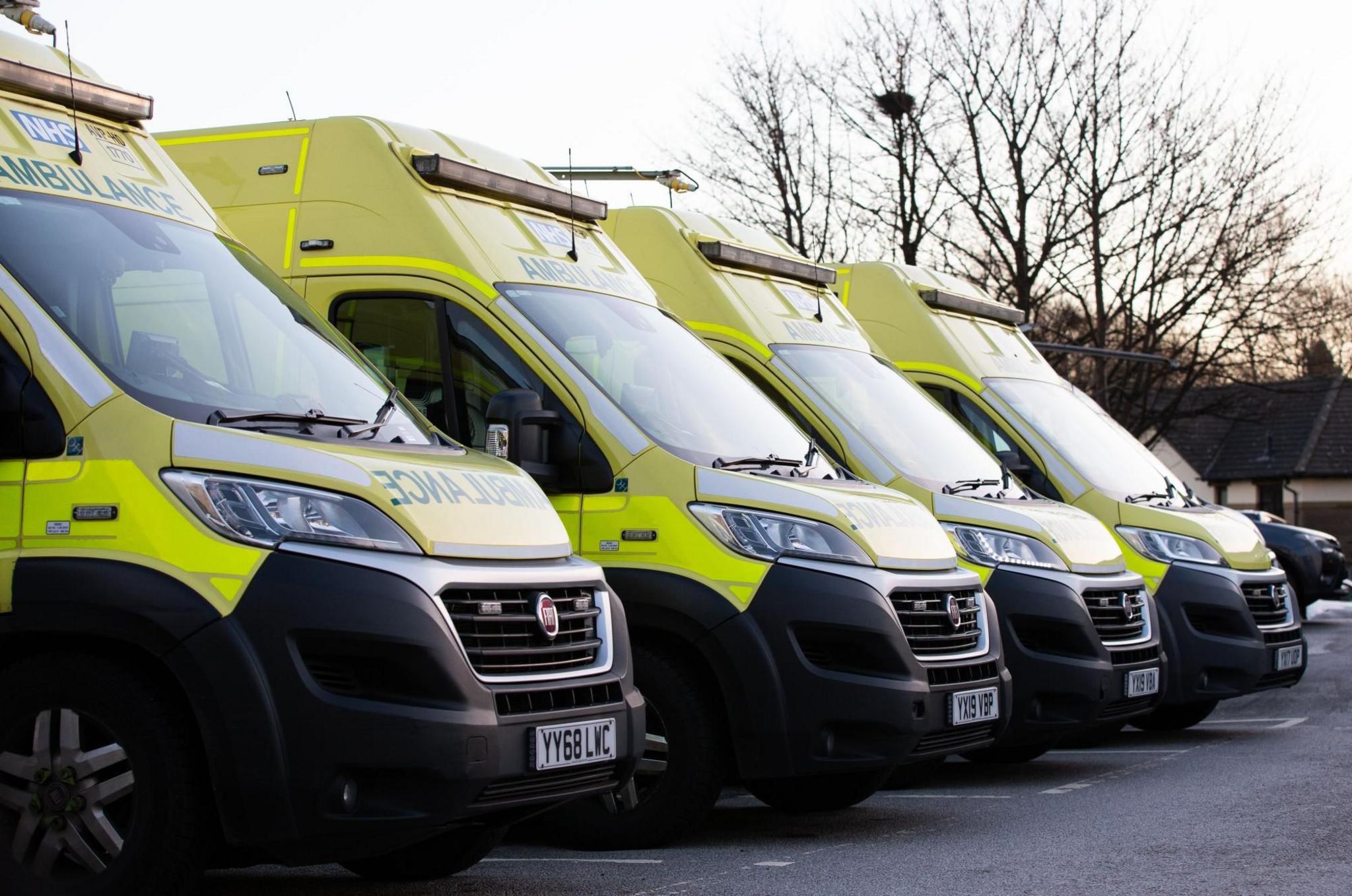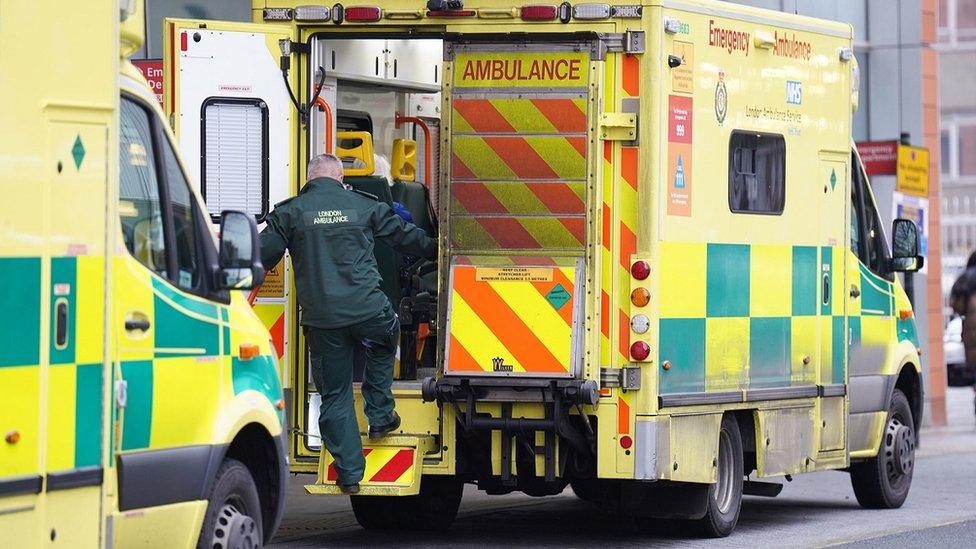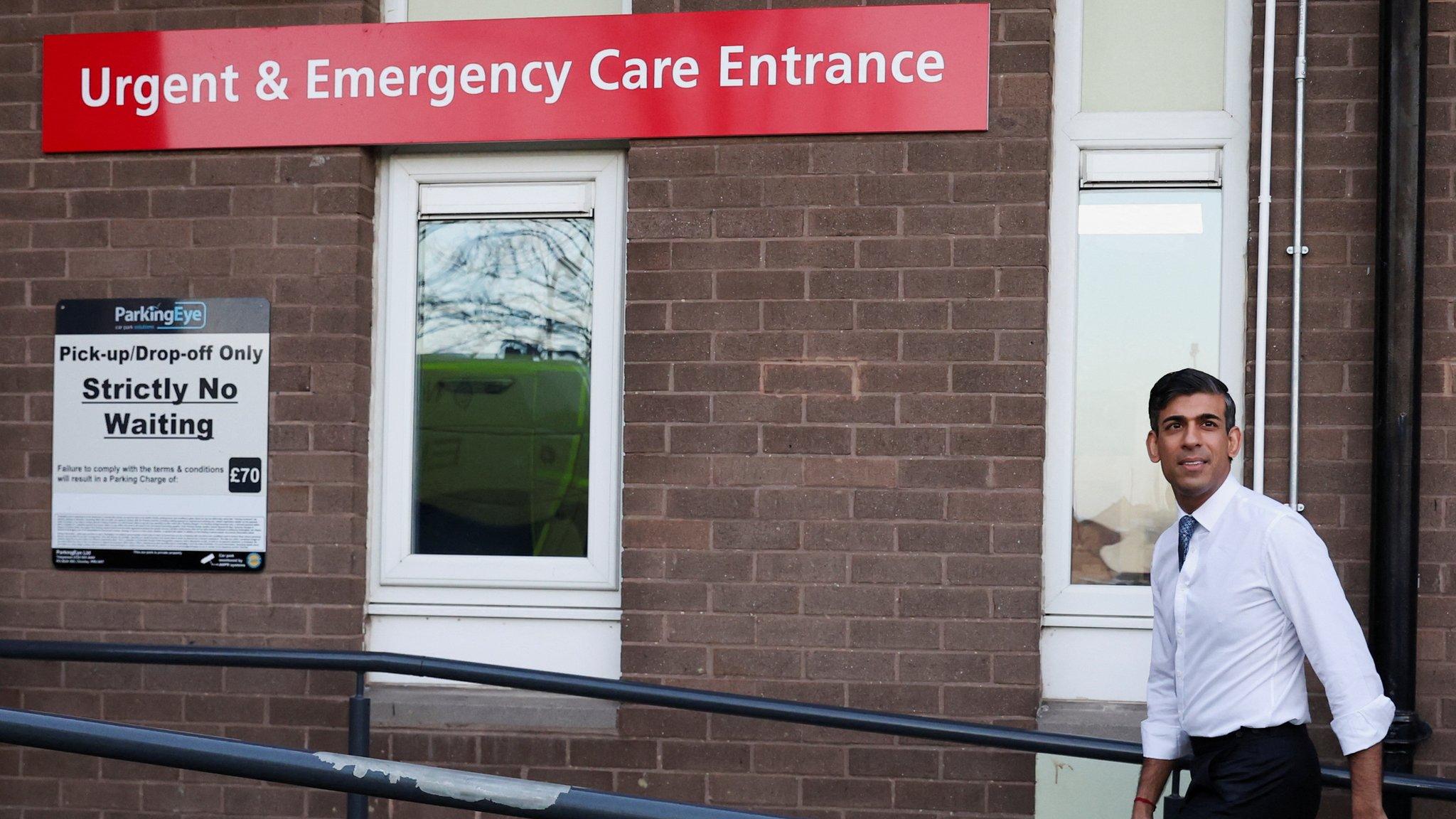Man died after four-hour ambulance wait - coroner

Yorkshire Ambulance Service was "not resourced" adequately, a coroner warned
- Published
A man who was struggling to breathe died after waiting nearly four hours for an ambulance in South Yorkshire, a coroner has found.
Carers had called 999 five times to try to get help for David Briggs, 54, who was disabled, South Yorkshire assistant coroner Hannah Berry said.
Ms Berry has now written to the government and local health leaders urging them to make changes to prevent similar deaths in the future.
The Department of Health and Social Care said ambulance services were receiving an extra £200m this year.
Mr Briggs, who had spina bifida and was paralysed from the waist down, lived in supported living accommodation in Lowedges Crescent, Sheffield.
He was being treated for a possible urinary tract infection when he began to have breathing difficulties on 14 November last year.
Carers called 999 at 20:49 GMT and Yorkshire Ambulance Service (YAS) designated it a Category 2 call, meaning an ambulance should arrive within 40 minutes.
Mr Briggs' carers again called 999 three more times between 21:45 GMT and 23:39 GMT, telling call handlers that his breathing was getting worse.
Two of the calls had been routed through to the East Midlands Ambulance Service (EMAS).
According to Ms Berry, EMAS at one point incorrectly designated the call as Category 2 rather than Category 1, the priority given to the most life-threatening emergencies.
Carers made their fifth call at 00:27 GMT on 15 November, by which point Mr Briggs was unresponsive and not breathing.
Yorkshire Ambulance Service then designated it a Category 1 incident and carers were advised to start CPR.
'Significant delay'
An ambulance finally arrived at 00:44 GMT, nearly four hours after the first call.
Mr Briggs was taken to Northern General Hospital in Sheffield, where he was pronounced dead at 02:31 GMT.
At an inquest, Ms Berry ruled that Mr Briggs had died from an infection resulting from catheterisation.
Ms Berry has now sent a Report to Prevent Future Deaths, external to the Department of Health and Social Care and the South Yorkshire Integrated Care Board (ICB), which plans health services locally.
She said YAS was “not resourced to respond to the number of emergency calls” it received.
Ms Berry said there had also been a “significant delay” for paramedics handing over patients at hospital, which had tied up ambulances.
There was a “risk that future deaths will occur unless action is taken”, she added.
'Deeply sorry'
Gary Lockley, head of emergency operations centres at EMAS, said the service was "deeply sorry" for the response provided to Mr Briggs, which he said fell below the standard of care patients should expect.
He said a serious incident investigation carried out by YAS had allowed EMAS to identify and address opportunities which were missed in providing Mr Briggs with the emergency response he needed.
He said: "We recognise this comes too late for Mr Briggs and his family, and for this we are sorry."
A spokesperson for YAS said the service was "very sorry that operational pressures delayed our response" to Mr Briggs and staff's thoughts were with his family.
The spokesperson said: "The trust contributed fully to the coroner’s inquest and has acknowledged the concerns raised."
The Department of Health and Social Care said ambulance services were receiving an extra £200m funding this year, alongside 800 new ambulances.
A spokesperson said plans put in place this year had resulted in a marked improvement both in A&E waits and ambulance response times.
South Yorkshire ICB was approached for comment.
Follow BBC Yorkshire on Facebook, external, X (formerly Twitter), external and Instagram, external. Send your story ideas to yorkslincs.news@bbc.co.uk, external.
- Published30 January 2023

- Published4 April 2023
